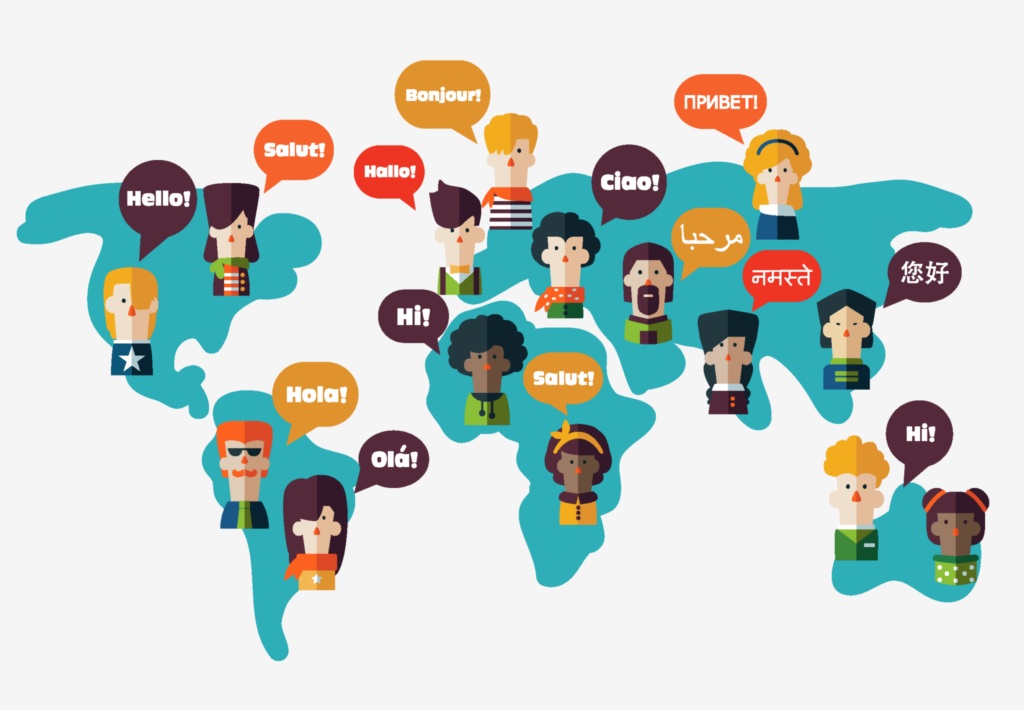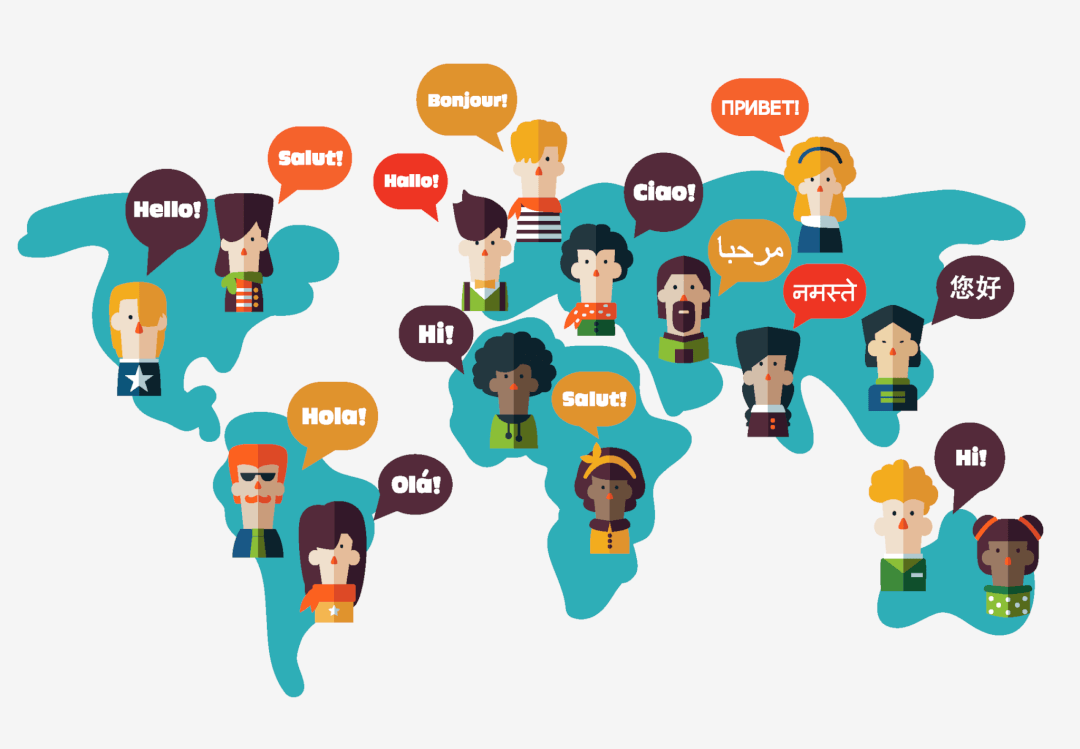What Is Language?
Introduction to The 5 Life Languages ® (continued)
Language is a structured system of communication that consists of grammar and vocabulary. It is the primary means by which humans convey meaning, both in spoken and written forms. The vast majority of human languages have developed writing systems that allow for the recording and preservation of the sounds or signs. Cultural and historical diversity are what characterize uman language across time. It possess the properties of productivity and displacement. This enables the creation of an infinite number of sentences, and the ability to refer to things that are not immediately present in the discourse. Social convention through learning define the use of human language.
Humans Communicate In Thousands Of Ways
Estimates of the number of human languages in the world vary between 5,000 and 7,000. Precise estimates depend on an arbitrary distinction (dichotomy) established between languages and dialect. Natural languages are spoken as well as signed.. Anyone can be encoded into secondary media using auditory, visual, or tactile stimuli. For example, writing, whistling, signing, or braille. In other words, human Written or signed language is the way to inscribe or encode the natural human speech or gestures.

When used as a general concept, “language” may refer to the cognitive ability to learn and use systems of communication. It may also be used to describe the set of rules that makes up these systems. All rely on the process of semiosis to relate signs to particular meanings. Oral, manual and tactile forms contain a phonological system that governs how symbols are used to form sequences. These are known as words or morphemes. A syntactic system that governs how words and morphemes are combined to form phrases and utterances.
What Is Linguistics?
Linguistics is he scientific study of language.. Critical examinations of languages have been debated at least since Gorgias and Plato in ancient Greek civilization. Thinkers such as Jean-Jacques rousseau (1712–1778) have argued that language originated from emotions. Others like Immanuel Kant (1724–1804) have argued that they originated from rational and logical thought. Twentieth century philosophers such as Ludwig Wittgenstein (1889–1951) argued that philosophy is really the study of language itself. Major figures in contemporary linguistics of these times include Ferdinand de Saussure and Noam Chomsky.
Language is thought to have gradually diverged from earlier primate communication systems. This possibly occurred when early humans acquired the ability to form a theory of mind and shared intentionality. This development is sometimes thought to have coincided with an increase in brain volume. Many linguists see the structures of language as having evolved to serve specific communicative and social functions. It is processed in many different locations in the human brain, but especially in Broca’s and Warnicke’s areas. Humans acquire language through social interaction in early childhood, and children generally speak fluently by approximately three years old. Language and culture are codependent. Therefore, in addition to its strictly communicative uses, this has social uses such as signifying group identity, social stratification, as well as use for social grooming and entertainment.
Languages Evolve And Diversify Over Time
Languages evolve and diversify over time, and the history of their evolution can be reconstructed by comparing modern languages to determine which traits their ancestral forms must have had in order for the later developmental stages to occur. A group of languages that descend from a common ancestor is known as a family; in contrast, a language that has been demonstrated to not have any living or non-living relationship with another is called an isolate. There are also many unclassified languages whose relationships have not been established, and cpurious languages may have not existed at all. Academic consensus holds that between 50% and 90% of languages spoken at the beginning of the 21st century will probably have become extinct by the year 2100.
Christian Counseling Can Help You Speak Your Spouse’s Language
You cannot separate soul health and spiritual maturity. Each of our counselors at Life Training Christian Counseling in Louisville, Kentucky is an ordained Christian minister as well as certified and licensed Christian counselors, credentialed by the National Christian Counselors Association.. We are able to help you experience freedom from shame, anxiety, and depression in your life. We also specialize in Christian counseling and online therapy for marriages as well as the unique needs of teens and pre-teens. Please click on this link to learn much more about how our Christian marriage counseling in Louisville, Kentucky can help you become a more authentic follower of Christ. We seek to help you find freedom from whatever you’re struggling with. We encourage you to visit our informative website at https://lifetrainingcounseling.org/
Life Training offers convenient sessions at our office in Louisville, Kentucky, as well as online counseling via Zoom or FaceTime. Our non-profit counseling practice has gained an outstanding track record from over a decade of helping men and women, individuals and couples, teens and pre-teens who are ready to move beyond anxiety, depression, and conflicts in marriage or other relationships find hope and healing in their lives. Contact us today at 502-717-5433, or by email at drdave@lifetrainingcounseling.org

